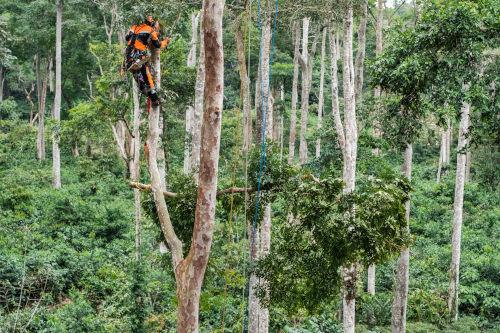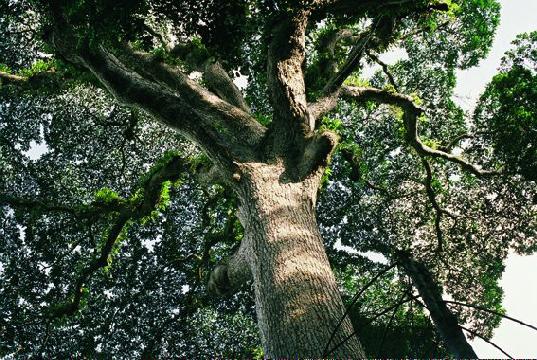Staff directory
Hans Beeckman
Wood biology
WoodMAB
Wood biology for Man and Biosphere The design of a typical UNESCO Man and Biosphere Reserve is appealing for research projects aiming at being relevant for sustainable economic development. Biosphere Reserves are understood as laboratories for sustainable development and more and more also for climate change research. The central zone of a Biosphere Reserve, where conservation is always the principal objective, is particularly interesting for monitoring of patterns and processes of the natural ecosystems. The surrounding buffer zone is suitable for establishing experimental research and for trainings. The outer circle is a transition area where small scale development projects can take place as well as environmental education, e.g. in de village schools. The UNESCO Biosphere Reserves of Yangambi (235 000 ha) and Luki (33 000 ha) are both situated within the semi-deciduous moist forests of the Democratic Republic of the Congo. These forests are part of the second largest tropical rainforest belt in the world and signify still a persistent carbon sink, rich in biodiversity and an essential provider of ecosystem services, including natural resources for economic development. Luki and Yangambi offer, thanks to the concept of Biosphere Reserve, an appealing opportunity to develop activities of research, training and education and serve, as such, as potential models for the reconciliation of nature conservation, economy and welfare. Both Yangambi and Luki have a particularly rich history of research. They can be considered as the cradle for investigations in Central-African botany, forest ecology, tree physiology, climatology, tropical agronomy and sylviculture. The archives, databases and scientific reference collections (curated both locally and in natural history collections in Belgium) related to these reserves are a treasure trove for actual research needs in the domains of global change (evaluations of carbon fluxes) and forest resilience. Some experimental plots are still present after their establishment, more than 70 years ago, and offer unique research material, in a region where there is a dire need for long term observations of vegetation dynamics and environmental fluctuations. The Service of Wood Biology establishes research projects in the Biosphere Reserves of Luki and Yangambi and strengthens the roles of these reserves as model workrooms for climate change and sustainable development investigation. The topics of the projects include carbon fluxes in a rainforest ecosystem, vegetation history, forest regrowth after fire exclusion, phenology and valorisation of archives and reference collections.
Principal investigator:
Dates:
2019Museum staff:
External collaborators:
CIFORERAIFT
Université de Kisangani
INERA
WWF
Plantentuin Meise
Ghent University
R&SD

